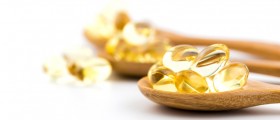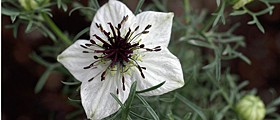
Pizza Spice in the Function of Health
Use of oregano is expanded from the kitchen to health supporting, thanks to a wide spectrum of biological activities.This savor plant whit intensive aroma, which healing powers are consisted in essential oil and aromatic components, is becoming increasingly popular today as a dietary supplement. Studies of oregano biological activity indicate a wide range of antibacterial, anti-fungal, antiviral and antioxidant properties, providing spread of its use to health supporting. Oregano oil has initially been used in aromatherapy, but today it is increasingly common in dry, ground form in capsules and as an oil that is applied locally to the skin or taken orally.
Through history, oregano has been used in folk medicine as: a natural antibiotic, expectorant and a means for bronchi expanding, anti-colic, remedy for chronic sinus inflammation, sore throat, non-specific inflammation of the ear, cold and flu, medicine for long lasting problems with nose and remedy for the urinary bladder inflammation.
Antibacterial and Antiviral Action
American physician Dr. Harry Preuss has proved by experiments on mices that oregano inhibits the growth of bacteria - staphylococci in the same way as the standard antibiotics. It has been demonstrated in laboratory conditions that oregano oil stops the growth of staphylococci equally as streptomycin, penicillin and vancomycin. The same scientist has later performed experiment with the fungus - Candida albicans and oregano again proved the positive effect on stopping the growth of these fungi, both topically and in the case of systemic infection. These findings suggest that daily use of oregano oil may prevent the development of candidiasis.The advantage of essential plant oils is that bacteria do not develop resistance to them, unlike to conventional antibiotics. Oregano oil acts on bacteria at the level of cellular respiration, while classic antibiotics block their metabolism and over time, since bacteria go through the process of mutation, it can become resistant to it. Active substances in oregano that provide above effects are carvacrol and thymol, which belong to the group of phenols. It should be noted that the essential oil of oregano is the strongest known herbal antiseptic, which is even 21 times stronger than phenol, which is used in hospital equipment sterilization. It has been discovered that oregano in vitro kills 100 percent of the colony of about thirty species of bacteria that include Psudomonas aeruginusa, Listera monocytogenes, Staphylococcus auerus and albus, and Bacillus antracis. Greek researches have showed that oregano kills bacteria in contaminated water and thus sterilizes it.
Numerous U.S. researches and studies are talking about an extremely successful application of wild oregano oil for sinusitis, chronic sore throat, virus, flu, cold, nonspecific ear infections, long-term problems with the nose, and breathing. Doctors say that it is particularly effective for problems with the sinuses.
Antioxidant Activity
Another good feature of oregano oil is its antioxidant activity. It is well known that oxidative stress is the most advanced disease today and that the fighting free radicals is part of the treatment of many diseases, particularly cardiovascular and cerebrovascular diseases (heart disease, stroke). Studies conducted by the U.S. Department of Agriculture have proven that plants provide much stronger antioxidant properties than the fruits and vegetables, and oregano has two to three times more antioxidant properties than other plants.
















Your thoughts on this
Loading...